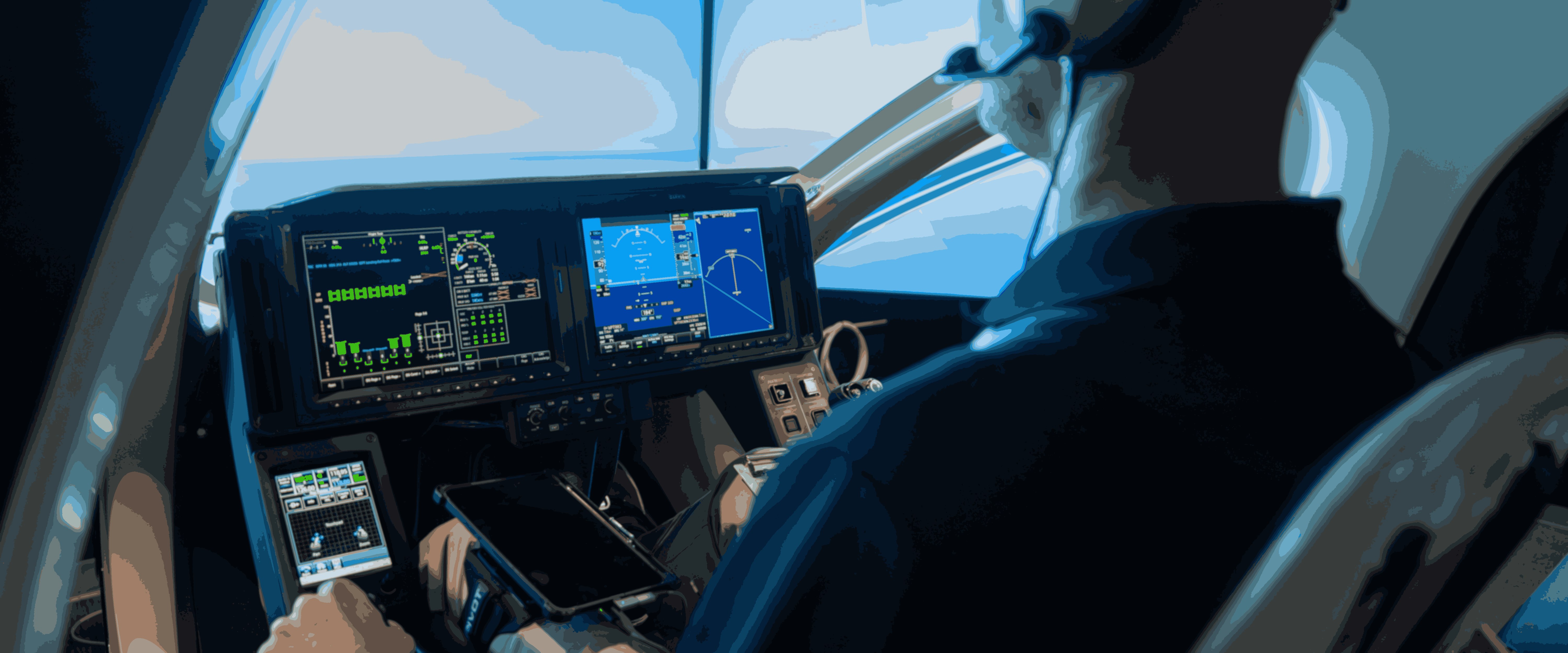We collect cookies. Read our privacy policy. Do you accept?
Dec 20, 2024
Joby Successfully Conducts First FAA Testing under TIA, Begins Final Phase of Certification Program
Type Inspection Authorization is considered the final phase of aircraft certification ahead of commercial service; Tests were completed using an FAA-conforming flight deck in a Joby simulator; Company targets 2025 to start TIA flight testing with first FAA-conforming aircraft, currently being built

Joby conducted its first testing under TIA on the flight deck of the company’s electric air taxi, with FAA pilots using FAA-conforming hardware in Marina, California. Photo: Joby Aviation
Santa Cruz, CA, Dec 20, 2024 — Joby Aviation, Inc. (NYSE:JOBY), a company developing electric air taxis for commercial passenger service, today announced it has entered the final phase of certification for its electric air taxi, having conducted its first FAA testing under Type Inspection Authorization (“TIA”). The testing involved pilots from the Federal Aviation Administration (“FAA”) evaluating human factors elements of flight safety using an FAA-conforming flight deck in a Joby simulator.
TIA testing is considered the final phase of the type certification process, which paves the way for an aircraft to begin commercial passenger operations. This phase involves FAA test pilots conducting testing to validate an aircraft’s performance and safety in accordance with previously-approved certification test plans.
“This milestone demonstrates Joby’s continued industry leadership and is a reflection of the maturity of our test program and the rigorous company testing we’ve already completed,” said JoeBen Bevirt, CEO and Founder at Joby Aviation.
“As well as continuing the for-credit testing of components, aerostructures and systems that is already underway, we are targeting the start of TIA flight testing in 2025 with our first FAA-conforming aircraft, which is currently being built at our facility in Marina, California.”
The tests were conducted according to a set of criteria outlined in an FAA-approved human factors certification test plan and measured pilot workload under various expected flight conditions, physical ergonomics of the flight deck, as well as other human factors aspects of aircraft safety. Four FAA test pilots completed three days of TIA testing during the engagement.
In another major achievement earlier this month, Joby announced it has successfully completed static load testing on a FAA-conforming tail structure of the aircraft, marking the first time the Company had tested a major aerostructure for FAA credit.
Joby is the first eVTOL manufacturer to complete three of five stages of the FAA type certification program and is more than 40 percent complete with the Company’s work for the fourth stage.
Joby’s electric air taxi is designed to carry a pilot and up to four passengers at speeds of up to 200 mph, offering high-speed mobility with a fraction of the noise produced by helicopters and zero operating emissions.
About Joby
Joby Aviation, Inc. (NYSE:JOBY) is a California-based transportation company developing an all-electric, vertical take-off and landing air taxi which it intends to operate as part of a fast, quiet, and convenient service in cities around the world. To learn more, visit www.jobyaviation.com.
Forward Looking Statements
This release contains “forward-looking statements” within the meaning of the “safe harbor” provisions of the Private Securities Litigation Reform Act of 1995, including but not limited to, statements regarding the development and performance of our aircraft, the growth of our manufacturing capabilities, our regulatory outlook, progress and timing, the expected timing of type certification; our business plan, objectives, goals and market opportunity; our current expectations relating to our business, financial condition, results of operations, prospects, capital needs and growth of our operations; and the expected benefits of our vertically-integrated business model, including the ability to rapidly bring new technologies to market. You can identify forward-looking statements by the fact that they do not relate strictly to historical or current facts. These statements may include words such as “anticipate”, “estimate”, “expect”, “project”, “plan”, “intend”, “believe”, “may”, “will”, “should”, “can have”, “likely” and other words and terms of similar meaning in connection with any discussion of the timing or nature of future operating or financial performance or other events. All forward looking statements are subject to risks and uncertainties that may cause actual results to differ materially, including: our ability to launch our air taxi service and the growth of the urban air mobility market generally; our ability to produce aircraft that meet our performance expectations in the volumes and on the timelines that we project; the competitive environment in which we operate; our future capital needs; our ability to adequately protect and enforce our intellectual property rights; our ability to effectively respond to evolving regulations and standards relating to our aircraft; our reliance on third-party suppliers and service partners; uncertainties related to our estimates of the size of the market for our service and future revenue opportunities; and other important factors discussed in the section titled “Risk Factors” in our Annual Report on Form 10-K, filed with the Securities and Exchange Commission (the “SEC”) on February 27, 2024, our Quarterly Report on Form 10-Q, filed with the SEC on November 6, 2024, and in future filings and other reports we file with or furnish to the SEC. Any such forward-looking statements represent management’s estimates and beliefs as of the date of this release. While we may elect to update such forward-looking statements at some point in the future, we disclaim any obligation to do so, even if subsequent events cause our views to change.
Contacts:
Joby Aviation
Investors:
Media:

